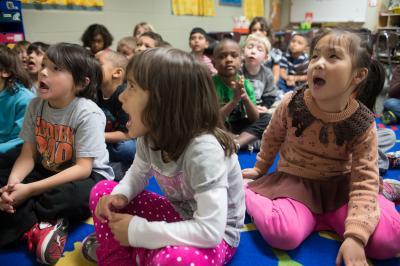How can a parent prepare for that? Socialization and behavioral parameters before a school environment probably help, though it is common in the modern period for parents to want to push that off to government education. And these are population-level findings based on surveys of teachers in only one school district, they may have little to do with your particular child, so don't worry if your child isn't popular the first two months, according to a teacher. Further, if 70 percent of kids have difficulty with the transition, it may not be a real worry at all.
The Early Learning Ohio project examines children’s learning, achievement and social development during the first five years of schooling, from pre-K through third grade. Kindergarten students completed assessments of their math, reading and social-behavioral skills at the beginning and end of the year and 10-14 weeks into the school year, teachers rated each child’s difficulty transitioning to the classroom. Children were rated in five areas: academics, making friends, working within groups, being organized, and following schedule and routine.

Of the 626 kindergarten students in 64 classrooms across 15 schools in one district in Ohio, the authors concluded that children who scored best on the academic and social-behavioral assessments at the beginning of the year – a sign of kindergarten readiness – were less likely than others to have transition difficulties.
Better preparation likely helped, as did personality. They also found that children who experienced fewer transition difficulties at the beginning of kindergarten demonstrated relatively more gains in math, reading and social-behavioral skills at the end of kindergarten, even when taking into account their kindergarten readiness skills and other factors that could play a role in skill development.
The 'big little leap' may be due to a more regimented educational environment. In preschool, 49 percent of time is play and only 14 percent in language and literacy while kindergarten flips that; 43 percent of the time becomes language and literacy and only 11 percent is play. The solution isn't holding everyone back so a few kids can achieve more, it may be that parents will need to take on more responsibility at home.






Comments